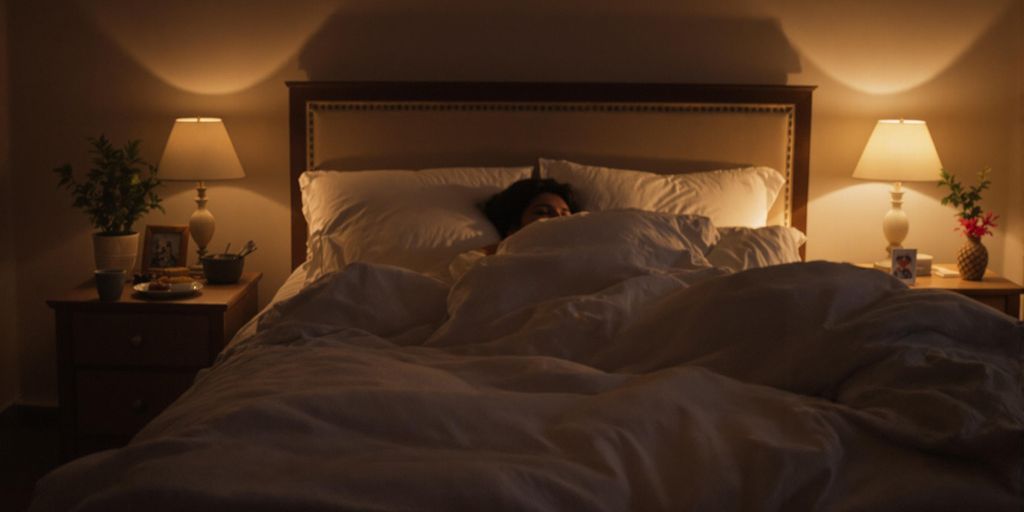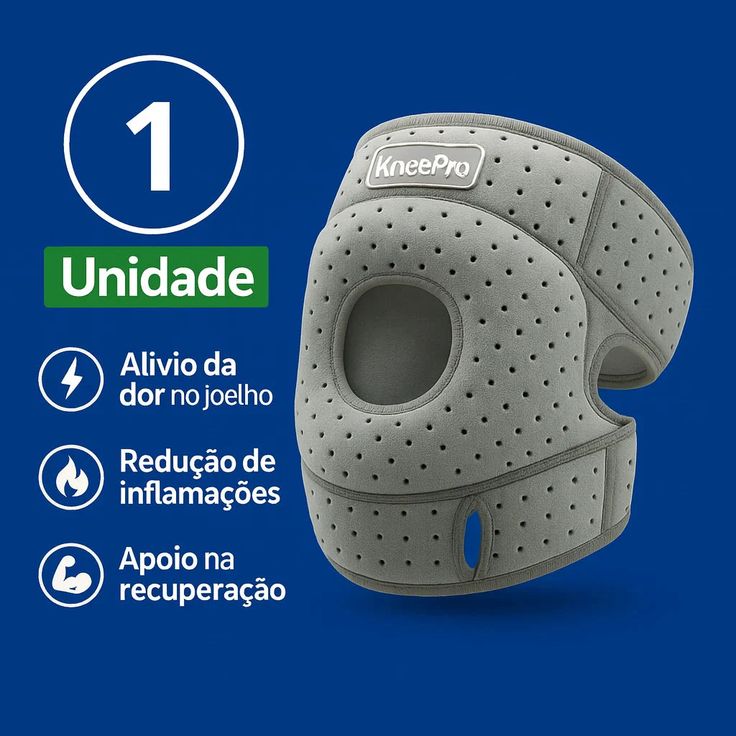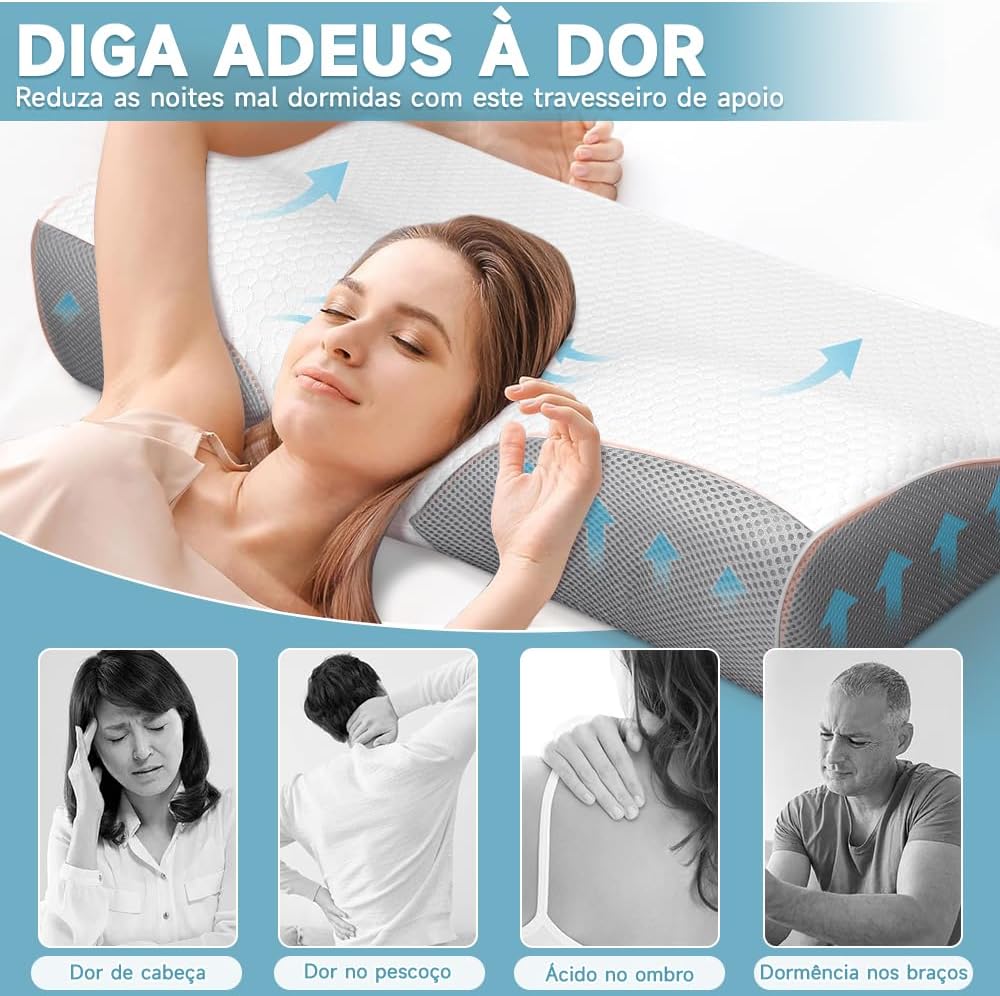10 dicas comprovadas para dormir melhor a noite, Ter uma boa noite de sono pode parecer uma batalha sem fim para muitos de nós. Seja estresse, vizinhos barulhentos ou o brilho do seu telefone, sempre parece haver algo no caminho. Mas a verdade é que alguns ajustes simples em seus hábitos diários e rotina de hora de dormir podem fazer uma grande diferença. Aqui estão 10 dicas práticas para ajudar você a dormir melhor e acordar se sentindo revigorado.
Key Takeaways
- Stick to a regular sleep schedule, even on weekends.
- Create a cozy and quiet bedroom environment.
- Limit caffeine and alcohol before bedtime.
- Try relaxation techniques like deep breathing or meditation.
- Avoid heavy meals and screen time close to bedtime.
1. Estabelecer um horário de sono consistente
Keeping a regular sleep schedule is one of the simplest yet most effective ways to improve your sleep. Your body thrives on routine, and going to bed and waking up at the same times each day helps set your internal clock, also known as the circadian rhythm. Here’s how to make it work:
- Stick to a schedule, even on weekends. It can be tempting to sleep in or stay up late on your days off, but this can throw off your rhythm and make it harder to fall asleep during the week.
- Avoid drastic changes. If you need to adjust your sleep time, do it gradually—shift by 15-30 minutes a day until you reach your goal.
- Prioritize consistency. Treat your bedtime and wake-up time as non-negotiable appointments with yourself.
A steady routine not only makes falling asleep easier but also ensures you wake up feeling more refreshed and ready to take on the day.
For those struggling to maintain this habit, consider starting small. Set an alarm not just for waking up, but also for when it’s time to wind down and prepare for bed. Over time, your body will naturally adapt to the routine, making sleep feel effortless.
2. Creating A Comfortable Environment

10 dicas comprovadas para dormir melhor a noite
Creating a bedroom that feels like a sanctuary is one of the most effective ways to improve your sleep. Your environment plays a huge role in how well you rest at night. Here are some practical tips to get started:
- Keep it cool: A slightly cooler room temperature is ideal for sleep. Aim for something between 60-67°F (15-20°C). Use a fan or adjust your thermostat to find that sweet spot.
- Block out light: Invest in blackout curtains or shades to keep your room dark. If that’s not an option, try a sleep mask.
- Minimize noise: For light sleepers, white noise machines or earplugs can be a lifesaver. Even soft background noise can disrupt your sleep cycle.
- Choose the right bedding: A comfortable mattress and pillows are non-negotiable. Experiment with materials and firmness levels to see what works for you.
- Declutter your space: A tidy room can help reduce stress and make it easier to relax.
A well-thought-out sleep environment doesn’t just make falling asleep easier—it helps you stay asleep longer and wake up feeling refreshed.
For more on creating a peaceful sleep sanctuary, consider using heavy curtains and rugs to absorb unwanted noise. Check out how to minimize noise and enhance comfort for better rest.
3. Masking Noise
Masking Noise
Struggling with disruptive sounds at night? You’re not alone. Noise from traffic, neighbors, or even a snoring partner can wreck your sleep. But the good news? You can block or mask these sounds to create a calmer environment.
- White noise machines: These devices create a consistent background sound that helps drown out sudden noises. Think of it as a sound blanket for your ears.
- Green noise: A softer, more natural alternative to white noise. It mimics the soothing sounds of nature, like rustling leaves or gentle waves.
- Fans or air purifiers: They not only improve air quality but also produce a steady hum that can help mask other sounds.
If gadgets aren’t your thing, you can also try earplugs or noise-canceling headphones. Everyone’s sensitivity to sound is different, so experiment with what works best for you.
A quiet environment isn’t just about silence; it’s about creating a space where your mind can relax and drift off without interruptions.
4. Avoiding Stimulants
Evitar estimulantes antes de dormir pode fazer uma grande diferença em quão bem você dorme.
Substâncias como cafeína, nicotina e álcool são culpados comuns que interrompem os ciclos do sono e tornam mais difícil adormecer ou permanecer dormindo. Enquanto a cafeína mantém seu cérebro alerta, a nicotina aumenta sua frequência cardíaca, e o álcool, embora possa fazer você se sentir sonolento inicialmente, pode fragmentar seu sono mais tarde na noite.
Here are some practical tips to minimize their impact:
- Limit caffeine: Try to avoid coffee, tea, or energy drinks in the late afternoon or evening.
- Skip the nightcap: Avoid alcohol close to bedtime; opt for a calming herbal tea instead.
- Avoid nicotine: If you smoke or use nicotine products, refrain from using them in the hours leading up to sleep.
Cutting down on stimulants doesn’t just improve your sleep—it can also boost your overall health and energy levels during the day.
For an even better result, establishing a consistent sleep schedule can help regulate your body’s internal clock and make falling asleep easier every night.
5. Practicing Relaxation Techniques
Feeling stressed or anxious before bed? It’s no surprise that these emotions can keep you tossing and turning all night. Relaxation techniques can help calm your mind and prepare your body for restful sleep. Here are a few methods to try:
- Mindfulness Meditation: Take a few minutes to focus on your breathing or repeat a calming word or phrase. This practice can help quiet racing thoughts.
- Deep Breathing Exercises: Inhale deeply through your nose, hold for a few seconds, and exhale slowly through your mouth. Repeat this for a few minutes to lower your heart rate.
- Visualization: Picture a peaceful scene, like a calm beach or a serene forest. Engage all your senses—imagine the sound of waves or the scent of pine trees.
- Gentle Yoga: Stretching and slow movements can release tension in your muscles, making it easier to relax.
Taking a few moments to unwind before bed can make a world of difference in how quickly you fall asleep and how refreshed you feel the next day.
Want to learn more about these techniques? Check out effective relaxation techniques to explore mindfulness meditation, deep breathing, and more.
6. Staying Active During The Day
Staying active during the day isn’t just about hitting the gym or going for a run. It’s about keeping your body engaged in ways that promote better rest when night falls. Here’s how you can make it work:
- Regular exercise: Aim for at least 30 minutes of moderate activity most days of the week. This could be walking, swimming, or even dancing around your living room. Just avoid intense workouts too close to bedtime, as they can leave you feeling wired.
- Natural light exposure: Get outside in the morning or early afternoon. Sunlight helps regulate your internal clock, making it easier to fall asleep at night.
- Limit naps: If you absolutely need a nap, keep it short—20 to 30 minutes—and try to take it earlier in the day.
Feeling physically tired by the end of the day can help you drift off faster and enjoy more restful sleep. The key is balance—too little activity can leave you restless, while too much right before bed can have the opposite effect.
7. Reducing Blue Light Exposure
Blue light from screens and devices can seriously mess with your sleep. It tricks your brain into thinking it’s daytime, which can suppress melatonin, the hormone that helps you wind down for the night. Here’s how to keep it under control:
- Avoid screens like phones, tablets, and TVs at least an hour before bed.
- If you must use devices, consider turning on a night mode or using blue light-blocking glasses.
- Switch to activities like reading a physical book or listening to calming music instead of scrolling through your phone.
Cutting back on blue light exposure isn’t easy, especially if you’re used to unwinding with your favorite show or scrolling social media. But even small changes, like dimming the screen or setting device-free zones, can make a big difference over time.
For those concerned about eye health, reducing screen time and taking regular breaks can help. Learn more about managing blue light.
8. Choosing Light Meals

10 dicas comprovadas para dormir melhor a noite
When it comes to preparing for a good night’s sleep, what you eat in the evening matters more than you might think. Heavy meals can disrupt your sleep, leaving you feeling uncomfortable and restless. On the other hand, light meals can help your body wind down and prepare for rest.
Tips for Choosing Sleep-Friendly Meals:
- Avoid greasy or fried foods. These can be tough on your digestion and may cause discomfort.
- Opt for meals rich in tryptophan—a nutrient that promotes serotonin production, which is essential for sleep. Think turkey, eggs, or nuts.
- Include complex carbohydrates, such as whole grains, which help your body absorb tryptophan more easily.
Example of a Light Evening Meal:
| Food Type | Example Foods |
|---|---|
| Protein (Tryptophan) | Turkey, eggs, tofu |
| Complex Carbs | Brown rice, quinoa |
| Sleepy Snacks | Almonds, bananas |
10 dicas comprovadas para dormir melhor a noite
Eating the right foods in the evening can make a world of difference in how quickly you fall asleep and how refreshed you feel the next day. Keep it light, nutritious, and balanced.
9. Progressive Muscle Relaxation
Progressive Muscle Relaxation (PMR) is a simple yet powerful method to help your body and mind unwind. The idea is to tense and then release muscles in a specific order, which not only reduces physical tension but also calms your thoughts. It’s like giving your body a signal that it’s okay to relax.
Steps to Practice Progressive Muscle Relaxation
- Find a quiet spot: Sit or lie down in a comfortable position where you won’t be disturbed.
- Start with your feet: Tense the muscles in your feet for about 5-10 seconds, then let go completely.
- Work your way up: Move to your legs, stomach, hands, arms, shoulders, and finally your face, repeating the tensing and relaxing for each group.
- Focus on the sensation: As you release the tension, notice the feeling of relaxation spreading through your body.
This technique can be especially helpful if you’re dealing with stress or anxiety that’s keeping you awake. You might even find it easier to drift off to sleep after completing a session.
PMR doesn’t just relax your body—it also helps clear your mind, making it a great tool for winding down at night.
For those new to the practice, progressive muscle relaxation can take a bit of patience, but the results are worth it. It’s a skill that gets better with time, so don’t worry if it feels awkward at first. Stick with it, and you’ll likely notice a difference in how quickly you can relax and fall asleep.
10. Choosing Medications And Supplements Wisely
Making informed choices about medications and supplements is a big deal when it comes to improving sleep. What you take can either help you drift off or keep you tossing and turning. Here’s how to approach it:
Understanding Your Options
- Over-the-counter sleep aids: These often contain antihistamines that make you drowsy. While they can help in the short term, they’re not a long-term fix and might leave you feeling groggy.
- Melatonin supplements: These are popular for resetting your sleep cycle, especially if you’ve been traveling or dealing with irregular hours. But don’t overdo it—stick to small doses.
- Herbal remedies: Things like valerian root or chamomile are natural options some people swear by. Just keep in mind, they don’t work for everyone.
Talking To Your Doctor
Before adding anything new to your routine, it’s smart to consult a healthcare professional. They can:
- Review your current medications to check for interactions.
- Suggest alternatives if something you’re taking is affecting your sleep.
- Help you decide if a supplement is worth trying or if another approach might work better.
Pro Tip: Keeping a comprehensive medication list, including all prescription and over-the-counter medications, can help your doctor provide the best advice.
Avoiding Pitfalls
- Don’t self-medicate with things like alcohol—it might make you sleepy at first, but it disrupts your sleep cycle.
- Be cautious with dosages. More isn’t always better, especially with supplements.
- Watch out for dependency. Even natural remedies can create a psychological reliance over time.
Making thoughtful decisions about what you put into your body is a step toward better sleep. Sometimes, it’s not just about finding the right pill or supplement but understanding when less is more.
Wrapping It Up
Ter uma boa noite de sono não é apenas sobre se sentir descansado — é sobre melhorar seu bem-estar geral. Ao experimentar essas 10 dicas, como manter um horário de sono, criar uma rotina confortável para a hora de dormir ou até mesmo ajustar sua dieta, você pode acordar mais revigorado e pronto para enfrentar o dia.
Lembre-se, as necessidades de sono de cada um são um pouco diferentes, então não se estresse se for preciso experimentar um pouco para descobrir o que funciona melhor para você. Bons sonhos!
Frequently Asked Questions
How can I create a consistent sleep schedule?
Go to bed and wake up at the same time every day, even on weekends. This helps regulate your body’s internal clock.
What is the best way to make my bedroom comfortable for sleeping?
Keep your room dark, quiet, and cool. Invest in blackout curtains, comfortable bedding, and consider using earplugs or a white noise machine.
Why should I avoid blue light before bed?
Blue light from screens can interfere with your natural sleep cycle. Try to limit screen time 1-2 hours before bedtime.
Are there any foods or drinks I should avoid before sleeping?
Yes, avoid heavy meals, caffeine, and alcohol close to bedtime as they can disrupt your sleep.
What are some effective relaxation techniques for better sleep?
You can try deep breathing, meditation, or progressive muscle relaxation to calm your mind and body before bed.
Should I consult a doctor if I still can’t sleep well?
Yes, if you’ve tried several strategies and still struggle with sleep, consult a healthcare professional to rule out underlying conditions.
10 dicas comprovadas para dormir melhor a noite, Veja mais artigos no site.











